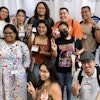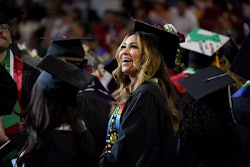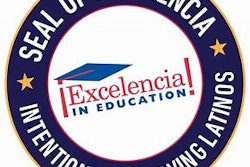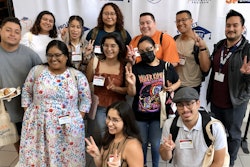Providing $100K Grants to Seven Black Colleges, Tom Joyner Foundation Encourages the Recruitment, Retention of Minority Teachers
Recruiting, training and maintaining quality teachers is a national challenge, but it has reached crisis levels in the Black community. Today, school systems must overcome a range of recruiting obstacles, including competition from other lucrative career fields and a general lack of interest in the teaching profession. Adding to the problem is the daunting task of passing the teacher licensing and certification exam, the Praxis II.
For the past two years, the Tom Joyner Foundation and the National Education Association have provided more than $700,000 in grants to encourage minority teachers to complete their certification at seven historically Black colleges and universities: Bowie State University, Cheyney State University, Clark Atlanta University, Harris Stowe State College, Jackson State University, Johnson C. Smith University and Tennessee State University.
The seven $100,000 grants offset testing fees and fund workshops, tuition, books and support for students preparing for the Praxis series of exams. The programs are only open to currently employed teachers in K-12 public schools or those currently enrolled in an accredited school of education.
“The program was a real boon to us,” says Dr. Ernest J. Middleton, dean of Clark Atlanta’s school of education. “It paid stipends for students and [provisional licensed teachers] to take preparation courses and take the test, and it was a recruiting tool to get more into teacher education.”
Certification exams vary from state to state, but the federal No Child Left Behind law has put teacher preparation front and center. NCLB requires that every teacher be “highly qualified” in his or her subject area, not just proficient in educational technique. The law also cuts in half the amount of time a teacher can use a provisional license, from six years to three. The provisional license allows teachers to work in the classroom while preparing to pass the Praxis II.
According to the Joyner Foundation and NEA, HBCUs were chosen as the grant recipients because minority-serving institutions, including Hispanic-serving institutions and tribal colleges, are the largest source of minority teachers. Currently, these institutions award close to half of all bachelor’s degrees in education earned by Blacks and Hispanics, and 12 percent of those earned by American Indians. Even so, the disparity between minority students and teachers is dramatic. Nationally, about 17 percent of public school students are Black, compared to only 8 percent of teachers.
“With No Child Left Behind, we will have a real shortage of minority teachers,” says Dr. Judith Presley, assistant dean of Tennessee State’s college of education. “It’s also the group that is not doing well on Praxis. They will get in and won’t stay in education.”
Tennessee State used its $100,000 grant to address deficiencies and teach test-taking strategies to teacher candidates and provisionally licensed teachers.
The grants can also offset the financial burden for students who have to take part or all of the Praxis exam over. Registration for the exam is $40 each time, and individual test sections cost between $75 and $85 per attempt.
To date, the Joyner Foundation has raised more than $25 million and provided grants to about 80 colleges universities.
— By Dianne Hayes
PRAXIS FACTS
Praxis I — Measures basic skills in reading, writing and math of college students entering teacher education programs.
Praxis II — Measures subject-specific knowledge and teaching skills as part of a teacher’s licensing and certification.
Praxis III — Assesses the skills of beginning teachers in their classroom setting.
© Copyright 2005 by DiverseEducation.com















